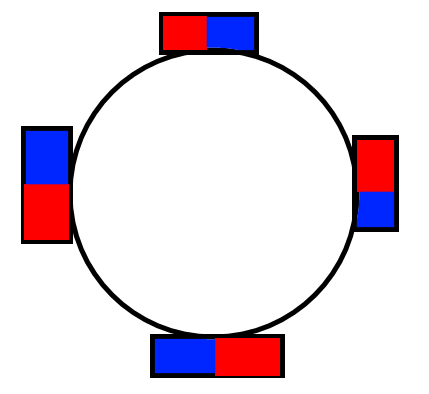In a previous question on this site I asked about the side effects of a having ludicrously strong, permanent, static magnetic field on the surface of a planet, capable of pulling in non-magnetized ferromagnetic objects from a distance of many miles. Now, the world I have in mind has technology equivalent to Europe somewhere around 1300-1600, but I'm curious how a hi-tech society could take advantage of that field. For instance, could you put an electromagnet on a spacecraft, and use the magnetic pull to achieve escape velocity? Could you set up power stations inside the field (not too close to the center!) and generate electricity? Some other obvious exploit?
Assumptions:
- The magnetic field is coming from an object with some ridiculous level of coercivity. Don't worry about how it got magnetized that strongly.
- The field is sufficiently strong to have a pull force of 10N on a 1kg iron ball at a distance of 100 km (I used 100 miles in the previous question; let's keep everything in metric here).
- The field/magnet is stationary with respect to the planet's surface. Fairly sure this doesn't require handwaving--one answer to my previous question suggested the magnet would pull on the planet's iron core and sink (catastrophically) to the center of the earth, but my understanding is that ferromagnetic materials in the mantle or below would be too hot to remain magnetic.
- The population of the planet survived the creation of the magnetic field (or the relevant population colonized the planet after the field was created).
Hope the question isn't too broad, and that it's acceptable to pose a question that isn't immediately of use to a story; happy to revise/close if it's a problem.
EDIT: To be clear, I'm looking for ways to exploit the magnetic field using modern knowledge and technology; the Renaissance period specified above is just for background. Based on the answers to my other question, some really wacky things start happening as you get close to a magnetic field that strong--I want to know if any of them would be useful.

